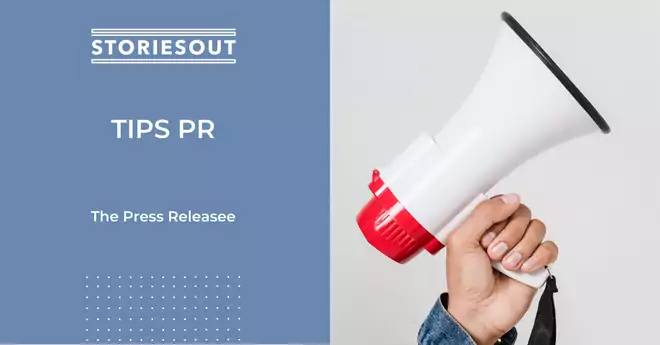How to write a press release, the star of PR and the darling of journalists…
There are numerous communication tools in press relations: the press release itself, op-ed, pitch, press alert… To be effective, you must know how to write each of them properly. Let’s start with how to write a press release.
Favored by 72% of journalists, they receive no less than 60 of them per day, which is equivalent to one every 8 minutes! With this mountain of information, and this over-solicitation, we suspect that a large number of them fall by the wayside.
So, how do you stand out from the crowd and make the front page of your favorite media?
The consultants at StoriesOut would like to share, here, some precious secrets that support the success of the agency’s clients
First of all, in which cases do we use a press release? The press release is the tool that allows one to transmit INFORMATION, simultaneously, to a set of journalists. A reaction to the news, a bias, a vision, or a prediction DOES NOT give rise to the writing of a press release. The latter will relate “hot” information (time sensitive): a new product, the appointment to a key position, an international expansion, a financial announcement (fund raising, LBO, etc.)…
The golden rule when writing a press release: one idea max!
When writing a press release, keep in mind: what are your motivations and reasons for writing this release?
👉 Keep in mind the message you want to get across. It should be the common thread of your press release
- Tip #1 – if you have 2 different announcements, do 2 different press releases
- Tip #2 – Space out these announcements by at least 15 days if the media target is the same
Press releases are structured documents aiming at effective skim reading
Structure your press release to encourage skimming (headline, subheadlines, indentations, quote and boilerplate)
👉 Use impactful headlines to win over your audience
- Tip #1 – the boilerplate is the paragraph positioned at the end of the press release that starts with “About My Company” – 5 to 6 sentences, max, that will introduce the journalist to (or remind them of) your industry, products, founders and other key facts about your company.
- Tip #2 – the boilerplate is the paragraph that links all your news and announcements together. It should therefore not (or only slightly) vary over long periods of time
Finally, the distribution in itself
Never send a press release as an attachment!
👉 Think about viewing on a smartphone, an increasingly common practice
- Tip #1 – the title of the press release is the subject of your email
- Tip #2 – your press release is the body of your email
- Tip #3 – your visuals are accessible from URLs (no attached files)
- Tip #4 – your visuals have understandable file names
The little touch that always makes an impact: add your logo and any visuals related to your announcement.
Add a ladle of storytelling, two tablespoons of your finest writing, a pinch of creativity, a touch of persuasion…. and, don’t forget, the cherry on top of the press release: your contact information!
You are now ready to shine with reporters!


